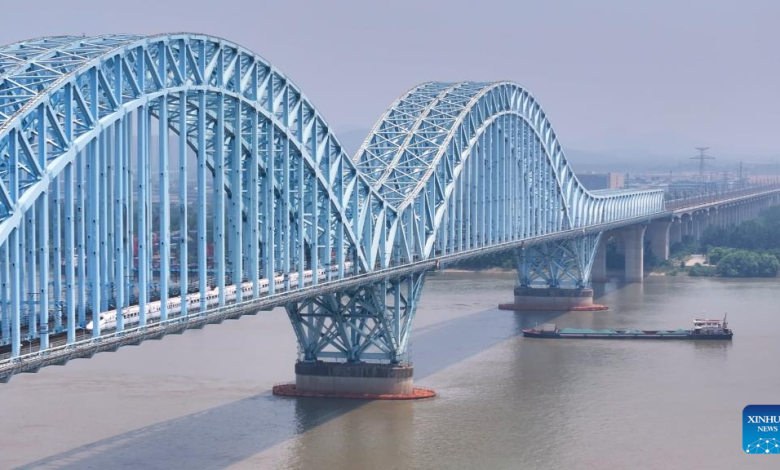China celebrates first multi-province ‘super-loop’ high-speed rail service

The “Super Loop” High-Speed Rail in the Yangtze River Delta marks one month of operation, showing initial spillover effects
The G8388/9/8 “Super Loop” high-speed rail service, the first to encircle three provinces and one municipality in the Yangtze River Delta region, celebrated its first month in operation on July 15. According to China Railway Shanghai Group, the operator, it has carried approximately 110,000 passengers with an average occupancy rate up to 90 percent.
Connecting major cities of Shanghai, Nanjing, Hefei, and Hangzhou while also linking more remote towns to urban centers, the “Super Loop” has facilitated closer people-to-people exchanges between cities of different sizes, whose flexibility to accommodate segmented travel has met the practical needs of travelers along the route.
As summer travel rush picks up, the “Super Loop” has provided convenient access to tourist attractions, with about 4,000 passengers per day taking advantage of its services since July 1. The line features rich historical sites, scenic mountains and waters, and ancient cultures that cater to the diverse interests of tourists. Notably, passenger numbers at stations near scenic areas in Zhejiang and Anhui provinces have risen by nearly 20 percent since July 1 compared with the initial stage.
Peng Bo, deputy director of the marketing section under the passenger transport department at China Railway Shanghai Group stated that the “Super Loop” leverages the Yangtze River Delta’s railway network, enhancing bullet train efficiency and connecting major traffic nodes, thus reducing waiting time for transfers between hubs and accommodating diverse travel needs including commuting and business trips.
Yang Yansheng, deputy chief engineer from China Railway Shanghai Design Institute, highlighted the “Super Loop” as a critical component in building a “Railway-bound Yangtze River Delta” as it offers passengers greater convenience with seamless hub connections, enhancing overall travel experience.
“In this way, the “Super Loop”, connecting key urban circles and economic belts, integrates economically vibrant areas with rich tourism resources, promoting exchange and economic synergy, and facilitating mutual benefits and cooperative growth,” Yang said.
Spanning more than 1,200 kilometers, it will start from Shanghai Railway Station in the heart of the city and then connect with key urban centers including Suzhou, Nanjing, Hangzhou and Huangshan Mountain before returning to Shanghai Hongqiao Railway Station.
Wang Biye contributed to this story.





